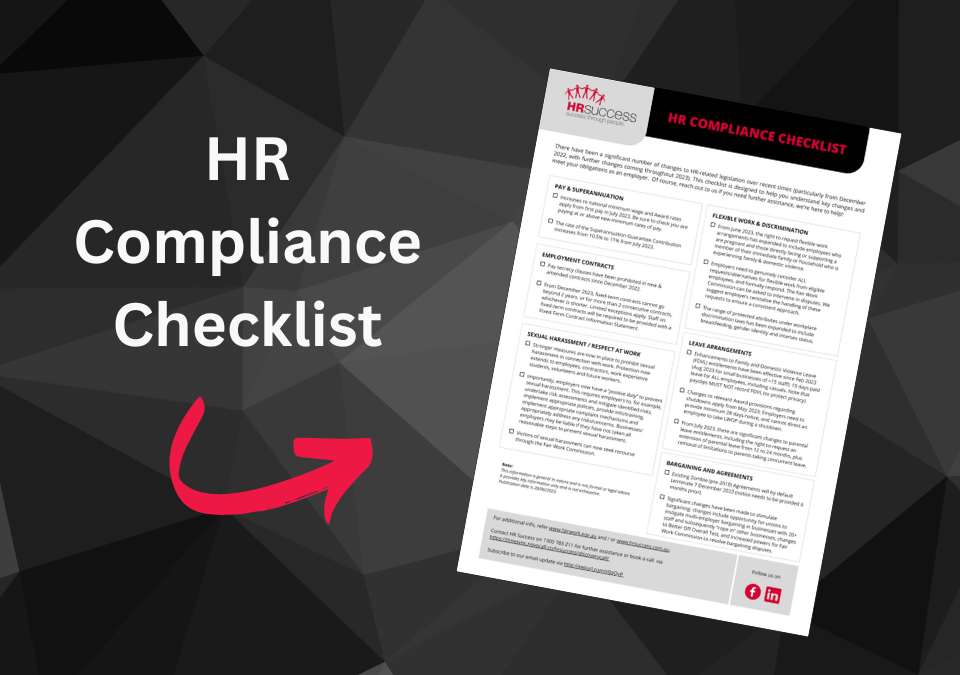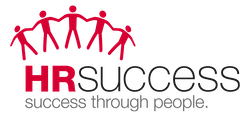KNOWLEDGE BASE
BROWSE OUR KNOWLEDGE BASE FOR ARTICLES RELATING TO HR COMPLIANCE AND RISK MANAGEMENT, MANAGING OTHERS AND RECRUITMENT.
If you’re looking for ideas or inspiration in relation to engagement, workplace culture and leadership in SMEs, check out our Success Through People blog.
*Please note that the information provided in our Knowledge Base is general in nature and does not constitute formal HR or legal advice. While we make every effort to ensure information is current and correct, you should undertake your own checks (or check with us!) before acting on information provided.

Workplace Surveillance: Proceed with Caution
We were recently approached by a client for guidance in regards to implementing workplace surveillance strategies. Their particular concern related to a work from home employee who, they suspected, may have been "taking it a bit too easy". While they are considering...

Legislation Update: March 2024 (Closing the Loopholes)
The start to the year has brought with it yet more changes on the industrial/employee relations front. These changes build upon other recent changes such as variations to employee authorised payroll deduction requirements, new rules for labour hire workers and small...

Useful Resources to Address Psychosocial Risks
Our recent article highlighting the obligations of employers to identify and address psychosocial risks in the workplace (click HERE if you missed it), generated a few enquiries, including one from a client whose frontline retail staff were unfortunately facing...

Legislation Update: January 2024
Sometimes it seems like the changes to employment-related legislation are never-ending, and further changes over the December 2023 / January 2024 period have served to only validate that perception. As a support to our clients and contacts, we’ve included below a...

Important Changes to Fixed Term Contract Requirements
Those employers who engage staff on fixed term contracts (that is, contracts that terminate on a specific date, or at the end of a nominated period) should be aware that, from 6 December 2023, new rules apply. There may be actions that you need to/should take prior to...

Addressing Psychosocial Risks in the Workplace
Relatively recent changes to WHS legislation (specifically the passing of the Work Health and Safety Amendment Regulation 2022, NSW) mean that employers now have an explicit duty to eliminate or minimise workplace psychosocial risks. The Regulation defines...

Do you Comply? Respect @ Work Obligations
The recent changes to industrial relations laws in Australia also saw changes to laws relating to sexual harassment in the workplace. Understanding and complying with these changes is critical for all businesses and organisations (note that small businesses are NOT...

Changes to Professional Employees Award (Sept 2023)
The Fair Work Commission recently announced changes to the Professional Employees Award 2020 (the Award). The changes are applicable from 16th September 2023, so it’s important for employers with employees covered by this Award to be across the key details. Background...

HR Compliance Checklist: Download
There have been a significant number of changes to HR-related legislation over recent times (particularly from December 2022, with more to come over the remainder of 2023). This checklist is designed to help you better understand and meet your obligations as an...
